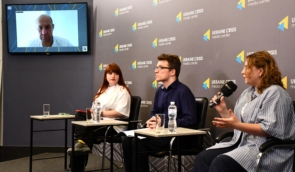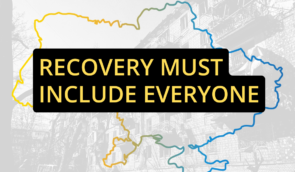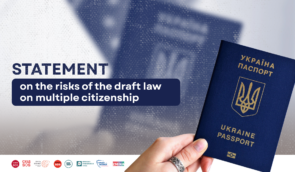Russia planned deportation of Ukrainians in advance, deliberately created conditions for it – human rights defender
Even before the full-scale invasion, Russia was preparing to deport Ukrainians from the occupied territories, later calling it evacuation, and also created conditions under which Ukrainians did not have a free choice to leave the occupation.
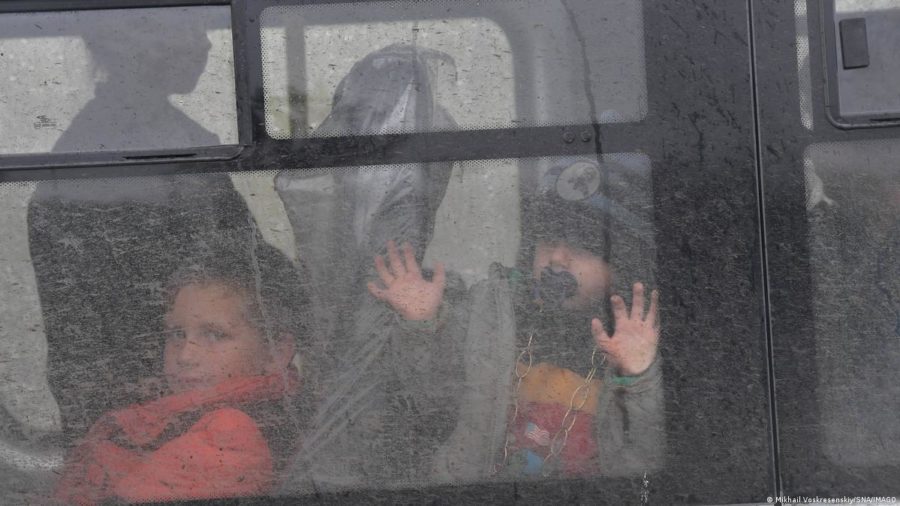 Photo: Illustrative image / DW
Photo: Illustrative image / DW Onysiia Syniuk, legal analyst at Human Rights Centre ZMINA, made a relevant statement during a briefing at the Ukraine Media Center – Ukrinform. She also presented the organization’s report on the signs and context of the deportation of Ukrainians by the Russians.
In its report, ZMINA analyzed the testimonies of interviewed people who survived deportation and the information from open sources since the beginning of the full-scale war until March 4, 2023.
“Russia had no legal grounds for the displacement of Ukrainians to the Russian Federation which the Russians call evacuation. Displacement can be called an evacuation only for two reasons, according to international humanitarian law: if it is necessary for the security of the population or there are imperative military reasons. Russia often cites a humanitarian disaster as a reason for the evacuation, but the disaster was created by the Russian Federation itself as was the case, in particular, in Mariupol,” Onysiia Syniuk said.
In addition, evacuation should take place within the bounds of the population’s country. And Russia could move Ukrainians to its territory only if it could not be avoided.
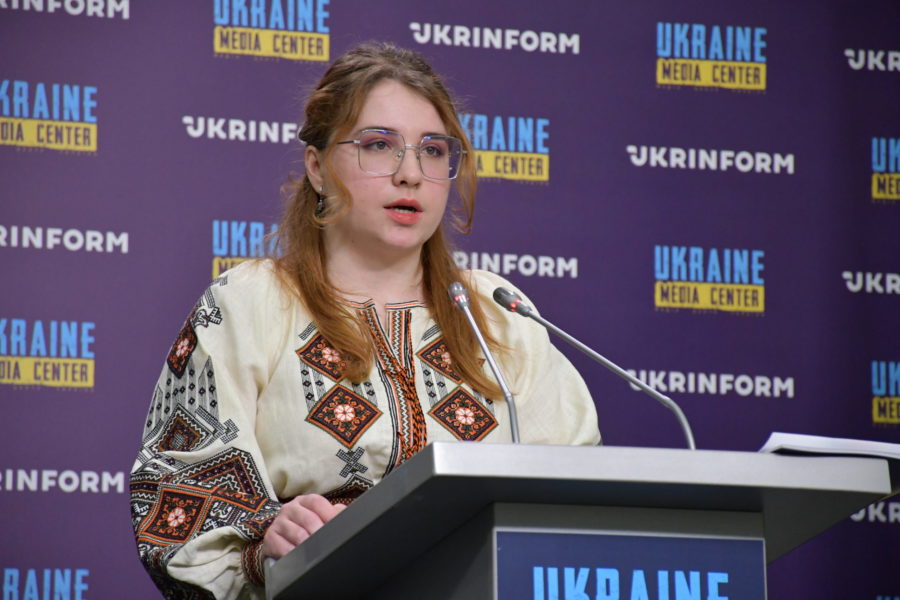 Photo: Onysiia Syniuk / ZMINA
Photo: Onysiia Syniuk / ZMINA The Russian Federation also does not return the population back to their native territories which is a requirement of international law. Russia should also ensure that displacement is carried out under satisfactory conditions in the context of sanitation, health, safety and nutrition, and that members of the same family are not separated.
“We are aware of cases when Ukrainians in Russia were forced to go deep into the Russian Federation immediately after their arrival, isolated from the people they came with, and put on trains without informing them where they were going. Deported Ukrainians were also denied the sale of tickets to third countries with various arguments: the child’s lack of a birth certificate, the coronavirus epidemic in Europe, etc.,” Syniuk said.
ZMINA also documented situations when people were taken from a filtration center in the occupied territory to the border with the Russian Federation for three days, without water or food. Only elderly people were allowed to leave at bus stops. People were accommodated in buildings with terrible conditions, etc. In addition, filtration measures themselves — keeping people in one place for a long time, psychological pressure, collecting personal data, etc. — are not foreseen under evacuation and amount to a separate violation.
Russia planned to deport Ukrainians, Syniuk noted, because there was a clearly planned policy and a prepared infrastructure for the displacement of the population.
“As of February 20, 2022, even before the start of the full-scale invasion, the authorities of Rostov region of the Russian Federation announced the preparation of 188 temporary accommodation centers (TACs) for ‘residents of Donbas’. As of October 2022, 807 TACs were opened in the territory of the Russian Federation,” Syniuk explained.
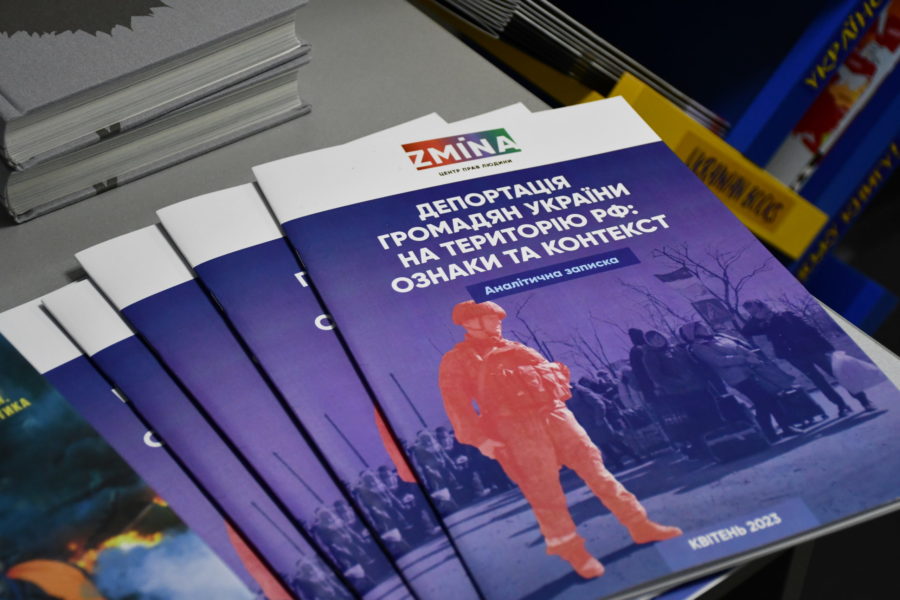 Photo: ZMINA
Photo: ZMINA The Russian side also disrupted and restricted evacuation to Ukraine-controlled territory, shelled humanitarian corridors previously agreed upon during Ukraine-Russia negotiations.
The expert also notes that even when Ukrainians agreed or asked to leave the occupation, such a choice was not always free, but made under duress. After all, Russia created conditions that literally threatened life. And there was an atmosphere of fear in the occupied territories because the Russians threatened Ukrainians, harassed and exerted psychological pressure on them.
“One of the means of psychological pressure, which Russia deliberately and widely uses and which also cannot be underestimated in terms of the impact on the psychological state of people and their decision to leave the territory, is information isolation and filling the information space with a single source: Russian news,” Syniuk noted.
In particular, cases were documented in Kharkiv and Kherson regions when the Russian military informed local residents that after the de-occupation of the territories, Ukraine would automatically recognize the population as collaborators because they remained in the occupied territory.
 Photo: ZMINA
Photo: ZMINA “That is, people could not freely choose whether to leave or not, but reflexively reacted to the belief that only escaping from the territory would allow them to survive,” the expert concluded and added that these are signs of the crime of forcible transfer and deportation.
Watch the video from the briefing here. Download the report at the link.
Human Rights Centre ZMINA is a member of Ukraine 5AM Coalition which began to work on February 25, 2022. Today, the Coalition unites 33 NGOs and four individual experts. They combined their efforts to systematically document war crimes and crimes against humanity committed during the Russian armed aggression against Ukraine.
If you have found a spelling error, please, notify us by selecting that text and pressing Ctrl+Enter.




